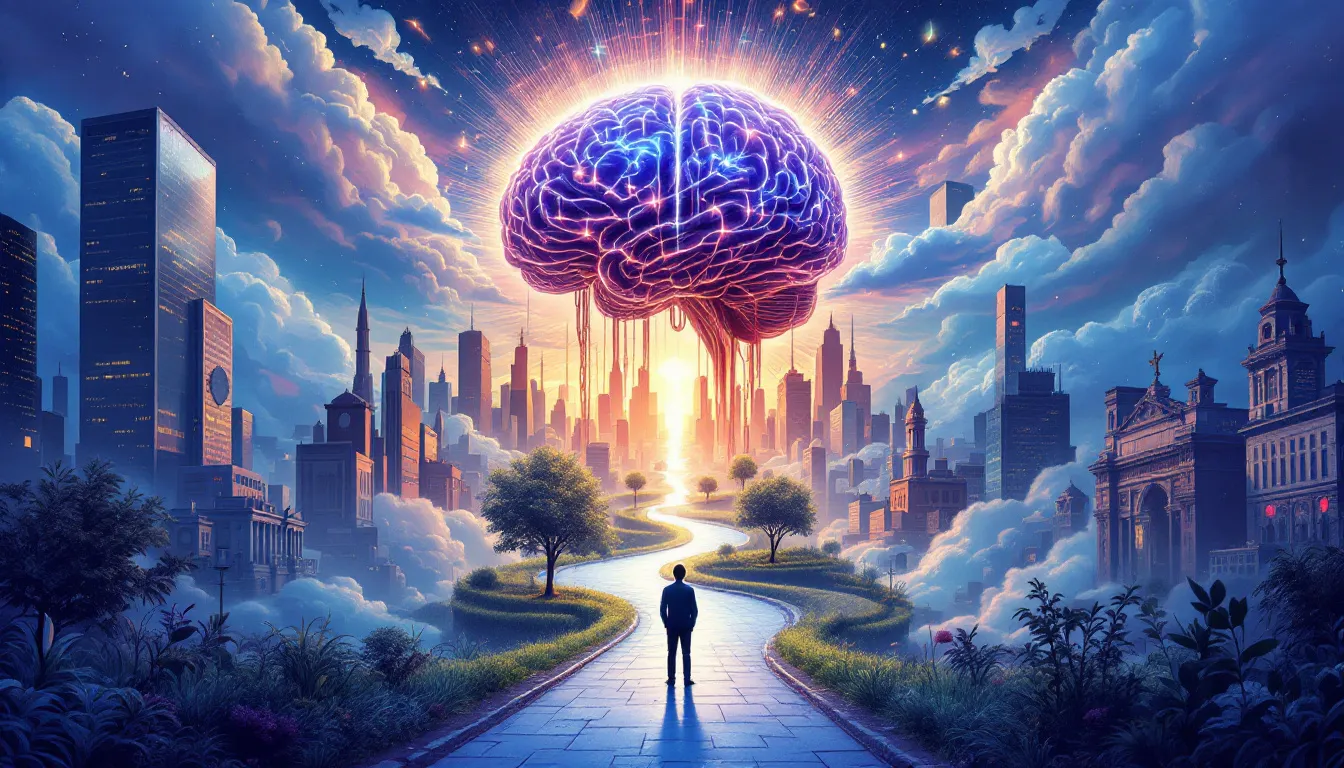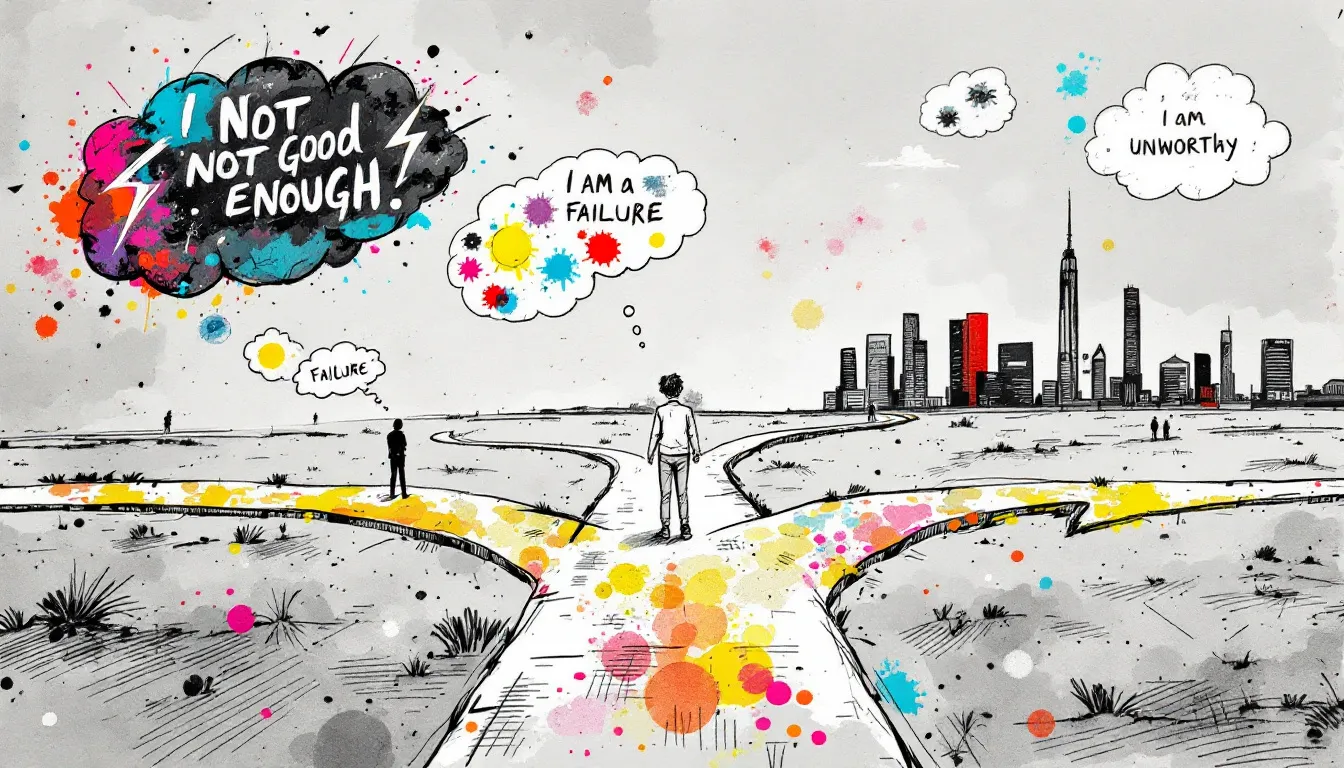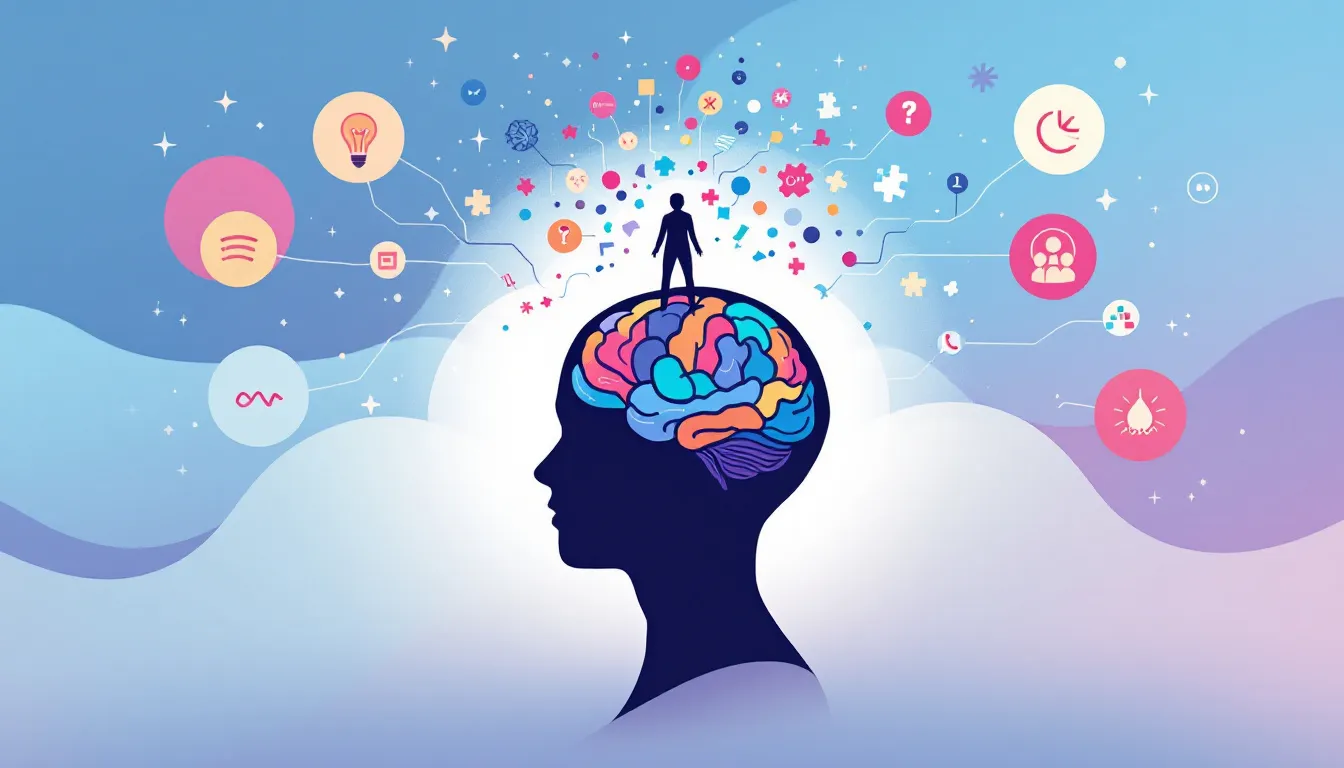Schema focused psychotherapy treats negative patterns, or ‘schemas,’ formed in childhood that impact adult thoughts and behaviors. It’s used to address mental health issues such as anxiety and depression. This article explains its principles, techniques, and benefits.
Key Takeaways
-
Schema therapy aims to identify and modify Early Maladaptive Schemas formed from unmet childhood needs, promoting healthier thoughts and behaviors.
-
The therapeutic relationship is essential in schema therapy, providing a supportive environment for clients to explore and transform their schemas.
-
Schema therapy has proven effective for various mental health conditions, including personality disorders, by helping individuals develop better emotional regulation and coping strategies.
Introduction to Schema-Focused Psychotherapy
Schema-focused psychotherapy is a specialized therapeutic approach that targets deeply rooted negative patterns, or ‘schemas,’ formed during childhood that influence adult thoughts, emotions, and behaviors. This form of psychotherapy provides a collaborative and supportive environment where clients work closely with trained therapists to identify, understand, and transform these maladaptive schemas that can involve significant impairment in daily life.
A primary goal of schema-focused psychotherapy is to help individuals develop a secure and true sense of self. This includes building self-esteem, learning to exercise sufficient self-control, and cultivating frustration tolerance, all essential for managing life’s challenges effectively. Negative schemas often arise from past experiences such as excessive emotional involvement, unjustified and extreme negligence, or substance abuse, which contribute to chronic worry, emotional deprivation, and feelings of being fundamentally inadequate relative to others.
The therapeutic relationship is central to schema-focused psychotherapy, providing the trust and emotional support necessary to challenge and change negative schemas. Therapists guide clients in recognizing patterns such as emotional inhibition, excessive emphasis on negative aspects, and difficulty expressing vulnerability. Through techniques grounded in cognitive therapy and experiential methods, clients learn to reframe unhelpful thoughts and practice healthier emotional expression.
Schema-focused psychotherapy specifically addresses maladaptive schemas related to undesirable physical appearance, unacceptable sexual desires, difficulty forgiving mistakes, and fears of losing control. Utilizing structured data and evidence-based strategies, therapists assist clients in gaining insight into their underlying beliefs and developing adaptive coping mechanisms. The Schema Therapy Institute plays a leading role in advancing this approach, emphasizing the importance of the therapeutic relationship and ongoing emotional support throughout the schema-focused psychotherapy journey.
Ultimately, schema-focused psychotherapy empowers individuals to achieve their personal goals, improve their ability to handle everyday responsibilities competently, and foster a more positive and optimistic outlook on life. By addressing and modifying maladaptive schemas, this therapy supports clients in overcoming significant impairment, building resilience, and attaining lasting personal fulfillment.
Understanding Schemas in Psychotherapy
Schemas are cognitive patterns that shape our thoughts, emotions, and behaviors. These patterns, or schemas, can lead to distorted perceptions of reality, prompting individuals to interpret new experiences in ways that reinforce their existing schema beliefs. Schema therapy involves beliefs aimed at changing these unhealthy and self-defeating behavior patterns, fostering healthier thoughts and reactions within a particular schema and cognitive structure.
Early Maladaptive Schemas are self-defeating patterns that are repeated throughout life. These schemas often represent a lifelong focus on certain negative patterns or unmet emotional needs, persistently influencing an individual’s thoughts, emotions, and behaviors. When these schemas are activated, they can lead to emotional distress, as individuals encounter situations that resonate with their maladaptive beliefs. Therapeutic interventions in schema therapy aim to address and modify these schemas, promoting a more balanced and healthier perspective on life.
Changing maladaptive schemas through schema therapy enables individuals to break free from the cycle of negative thoughts and behaviors. This transformation not only improves mental health but also enhances overall well-being. The therapeutic relationship is crucial in schema therapy, as it provides a safe and supportive environment for individuals to explore and change their existing schemas.
The Role of Childhood Experiences
Childhood experiences play a pivotal role in the formation of schemas. These fundamental cognitive frameworks develop from a child’s interactions with caregivers and peers, shaping how they perceive themselves and their relationships. When core emotional needs are unmet during childhood, early maladaptive schemas can arise, influencing behavior patterns into adulthood. The absence of constant support and a normal degree of emotional nurturance can contribute significantly to the development of these schemas.
For example, the Emotional Deprivation schema arises from a lack of emotional support and nurturing during childhood, causing individuals to ignore their own emotional needs and hindering their normal social development. This schema can manifest in two major forms: deprivation of nurturance and deprivation of empathy. Similarly, the Defectiveness/Shame schema creates one’s perceived flaws, resulting in feelings of unworthiness and a fear of judgment or rejection from others. This schema often leads to an inordinate fear of rejection or criticism. The Social Isolation schema, on the other hand, makes individuals feel disconnected from others, often avoiding social interactions due to a sense of insufficient individual identity and not belonging, leading to emotional inhibition, which can be fundamentally inadequate relative to their needs.
Other common maladaptive schemas include the Mistrust/Abuse schema, where individuals expect mistreatment in relationships, and the Dependence/Incompetence schema, which fosters a belief that one cannot function independently and is dependent primarily on others. Schema-focused therapy aims to confront and heal from these past traumas, promoting personal fulfillment and healthier relationships. These early schemas can influence major life decisions well into adulthood.
Identifying Maladaptive Schemas and Emotional Deprivation
Unmet emotional needs during childhood can lead to the creation of maladaptive schemas that significantly influence adult behavior. These schemas are categorized into five domains, each representing various unmet emotional needs experienced during childhood. Negative experiences in childhood can create an underlying belief that hinders personal growth and the ability to form healthy relationships.
Schema therapy helps individuals identify and modify these negative behavioral patterns. There are 18 Early Maladaptive Schemas grouped into five categories: Disconnection & Rejection, Impaired Autonomy & Performance, Impaired Limits, Other Directedness, and Over-vigilance & Inhibition. Recognizing and addressing these schemas is crucial for breaking free from self-defeating patterns and fostering healthier behaviors. An excessive focus on meeting certain needs or standards generally leads to psychological distress and impaired functioning.
Coping Styles and Modes
In schema therapy, coping styles reflect how a child adjusts to harmful experiences during childhood. They embody the methods of adaptation to these challenges. These coping mechanisms can persist into adulthood, influencing how individuals handle stress and interact with others. Schema modes, on the other hand, are moment-to-moment emotional states and coping responses that can shift depending on the situation.
Schema therapists guide clients in developing healthier coping strategies to replace their deeply ingrained maladaptive ones. Coping styles can be broadly categorized into three major forms: avoidance, surrender, and overcompensation. Avoidance involves steering clear of situations that trigger negative schemas, while surrender means giving in to the schema and behaving in ways that reinforce it. Overcompensation involves acting in exaggerated ways to counteract the schema’s perceived threat. Overcompensation can manifest as forcing one’s point or engaging in passive aggressive behavior, both of which are maladaptive coping responses. It often involves insistence on one’s own perspective or standards, which can strain relationships.
By understanding and addressing these coping styles and modes, schema therapy helps individuals exercise sufficient self-control, handle one’s everyday responsibilities in a competent manner, and guide normal social interaction without being overwhelmed by their schemas. This process ultimately fosters healthier emotional expression and self-esteem.
Goals of Schema Focused Psychotherapy
The main objective of schema-focused psychotherapy is to assist patients in fulfilling their core emotional needs. This approach aims to support individuals in achieving emotional satisfaction. This is achieved through a combination of therapeutic techniques, including limited reparenting, where therapists provide nurturing and guidance to help patients meet their emotional needs. Schema therapy fosters a safe and supportive environment, using the therapeutic relationship to illustrate what a healthy and trustworthy connection looks like, thereby enhancing emotional expression and understanding.
Participants in schema-focused therapy often develop a stronger sense of self-worth. This transformation allows individuals to achieve their personal goals and overcome the fears and exaggerated focus on negative schemas that have been holding them back. Through schema therapy, patients can build a more balanced and fulfilling life.
Conditions Treated with Schema Therapy
Schema therapy is an effective treatment modality for various mental health disorders. It has been found beneficial for conditions such as borderline personality disorder (BPD), anxiety, chronic depression, obsessive-compulsive disorder (OCD), post-traumatic stress disorder (PTSD), and eating disorders. Addressing the underlying schemas contributing to these conditions allows schema therapy to help individuals break free from negative patterns and improve their mental health.
In addition to personality disorders, schema therapy has shown promise in addressing criminal behavior and other maladaptive patterns. This makes it a versatile and powerful approach in the field of psychotherapy. By modifying existing schemas, schema therapy helps individuals develop healthier coping mechanisms and achieve better overall functioning.
The therapeutic relationship is crucial in schema therapy, as it provides a structured and supportive environment for individuals to explore and change their negative schemas. This relationship, combined with the techniques of cognitive therapy, creates a comprehensive approach to treating various mental disorders and promoting lasting change.
Core Techniques and the Therapeutic Relationship in Schema Therapy
Schema therapy incorporates a variety of cognitive, behavioral, and experiential interventions to address maladaptive schemas. These techniques are designed to challenge and reassess existing schemas, helping individuals develop a more accurate and supportive perspective of themselves and the world. By integrating cognitive behavioral therapy techniques, schema therapy provides a comprehensive approach to modifying negative patterns.
One of the core techniques in schema therapy is the use of imagery techniques, where clients visualize their schemas and emotionally engage with them. This process allows individuals to confront and process their emotions in a safe and controlled environment. Role-playing is another essential technique, helping clients enact new behaviors and responses, thereby reinforcing healthier patterns.
Behavioral pattern analysis is also a critical component of schema therapy. Clients are encouraged to identify and modify their maladaptive behaviors, promoting a more balanced and healthy lifestyle. These core techniques work together to create a secure and true sense of self, allowing individuals to overcome their negative schemas and achieve lasting change. Nurturing positive impulses is a key aspect of schema therapy, helping clients develop healthier emotional responses and adaptive behaviors.
Positive or Optimistic Aspects and Benefits of Schema Focused Psychotherapy
Schema-focused therapy offers numerous benefits, including better emotional regulation, improved relationships, and increased frustration tolerance. By addressing the underlying schemas contributing to mental health disorders, schema therapy helps individuals develop healthier coping strategies and navigate their emotional responses more effectively.
Another significant benefit of schema therapy is the enhancement of interpersonal relationships. By helping clients understand and modify their negative schemas, schema therapy promotes healthier interactions and stronger connections with others.
This approach also aids in developing greater frustration tolerance, allowing individuals to cope better in challenging situations and improve their overall quality of life by recognizing the positive or optimistic aspects.
Limitations and Challenges
While schema-focused psychotherapy offers many benefits, it also comes with certain challenges. The therapy process can trigger intense emotions, which may overwhelm some individuals during their transformation. This can lead to potential negative outcomes, including excessive emotional involvement and difficulty in processing these intense emotions. Individuals with very high internalized standards often experience difficulty slowing down and relaxing, which can exacerbate stress and emotional overwhelm.
Expressing vulnerability during therapy can be challenging for many individuals due to their underlying schemas and perceived instability, which are frequently characterized by a pervasive difficulty expressing vulnerability stemming from an exaggerated fear of losing control and excessive expression when asserting one’s power while engaging in schema-focused psychotherapy. Emotionally unstable fears focus can complicate this process further.
Despite these challenges, schema therapy ultimately aims to foster resilience and healthier coping mechanisms, helping individuals ultimately fall overcome their fears and achieve lasting change.
Effectiveness of Schema Therapy
Schema therapy has shown initial success in treating various personality disorders, including borderline personality disorder. Research indicates that schema therapy can reduce early maladaptive schemas and improve symptoms in individuals with personality disorders. In fact, 11 out of 12 studies found a reduction in maladaptive schemas following schema therapy interventions.
Participants in schema therapy for personality disorders experienced significant symptom improvements, although the quality of the studies varied. Despite these positive findings, there is limited research on why some individuals do not respond positively to schema-focused therapy. Additionally, only a limited number of studies have been conducted outside of personality disorders, indicating a gap in research for other mental health conditions.
Most studies on schema therapy reported small sample sizes and low methodological rigor, suggesting caution in interpreting results. Nevertheless, the evidence supports schema therapy as a promising approach for reducing maladaptive schemas and improving mental health.
Finding a Qualified Schema Therapist
Finding a qualified schema therapist is crucial for effective treatment. It’s beneficial to seek therapists who are certified by the International Society of Schema Therapy (ISST), as they have undergone rigorous training at a schema therapy institute. Consider the therapist’s years of experience, as seasoned practitioners may have more effective strategies and insights.
Ensure the therapist’s approach aligns with your needs, including their familiarity with various therapeutic modalities alongside schema therapy. The therapeutic relationship is also crucial; find a therapist with whom you feel comfortable and understood.
Lastly, check if the therapist accepts your insurance to avoid unexpected financial burdens.
Expert Schema Therapy at Bay Area CBT Center
At Bay Area CBT Center, we specialize in schema therapy—an advanced, integrative approach that blends insights from schema theory, cognitive science, experimental and social psychology, and cognitive development theory to target deep-rooted patterns that keep you stuck. We offer individual schema therapy, online schema therapy, schema therapy for couples, and customized retreats across California that are fully grounded in a schema focused approach. Whether you’re looking for a schema therapist in San Francisco or seeking care online, our expert clinicians are here to help.
Our schema therapists are experts in combining schema therapy with Acceptance and Commitment Therapy (ACT) to help you shift painful, pre-existing schemas and outdated narratives that no longer serve you. We follow the powerful protocols described in:
Work with a Schema Therapist to Transform Attachment and Core Beliefs
At Bay Area CBT Center, our approach targets your self schema and pre-existing beliefs—often formed in childhood when children develop relational blueprints—and helps update your current schemas to be more accurate, flexible, and compassionate. Whether you’re dealing with relational triggers, insecure attachment, or chronic emotion dysregulation, our schema therapy interventions aim to transform your existing schema into empowering and values-based patterns of connection.
We also offer immersive mental health retreats and customized retreats that integrate schema focused approaches for individuals, couples, and groups. These retreats are designed to help you shift longstanding patterns, overcome relational blocks, and build emotional intimacy. You’ll work with clinicians who are trained in ACT, mindfulness, and schema focused approaches that are tailored to your goals.
For couples, our schema therapy for couples addresses core relational wounds and helps heal insecure attachment styles by building new, secure patterns of emotional connection. Many of our couples begin by taking our Relationship Schemas Quiz to uncover their individuals schema and understand how current schemas drive conflict and emotional disconnection.
Through the lens of social psychology and problem-solving, schema therapy empowers you to see the invisible patterns behind your behaviors, understand how your pre-existing schemas limit your growth, and learn how to create flexible, values-aligned ways of being in relationships and in your own mind.
Summary
Schema-focused psychotherapy offers a comprehensive approach to understanding and modifying deeply ingrained patterns that shape thoughts, emotions, and behaviors. By addressing the role of childhood experiences, identifying maladaptive schemas, and developing healthier coping strategies, schema therapy helps individuals achieve lasting change.
The therapy’s effectiveness in treating various mental health disorders, combined with its core techniques and benefits, makes it a powerful tool in psychotherapy. Despite its challenges, schema therapy fosters resilience and healthier coping mechanisms, helping individuals overcome their fears and achieve personal fulfillment. Consider exploring schema therapy as a viable option for your mental health needs.
























































